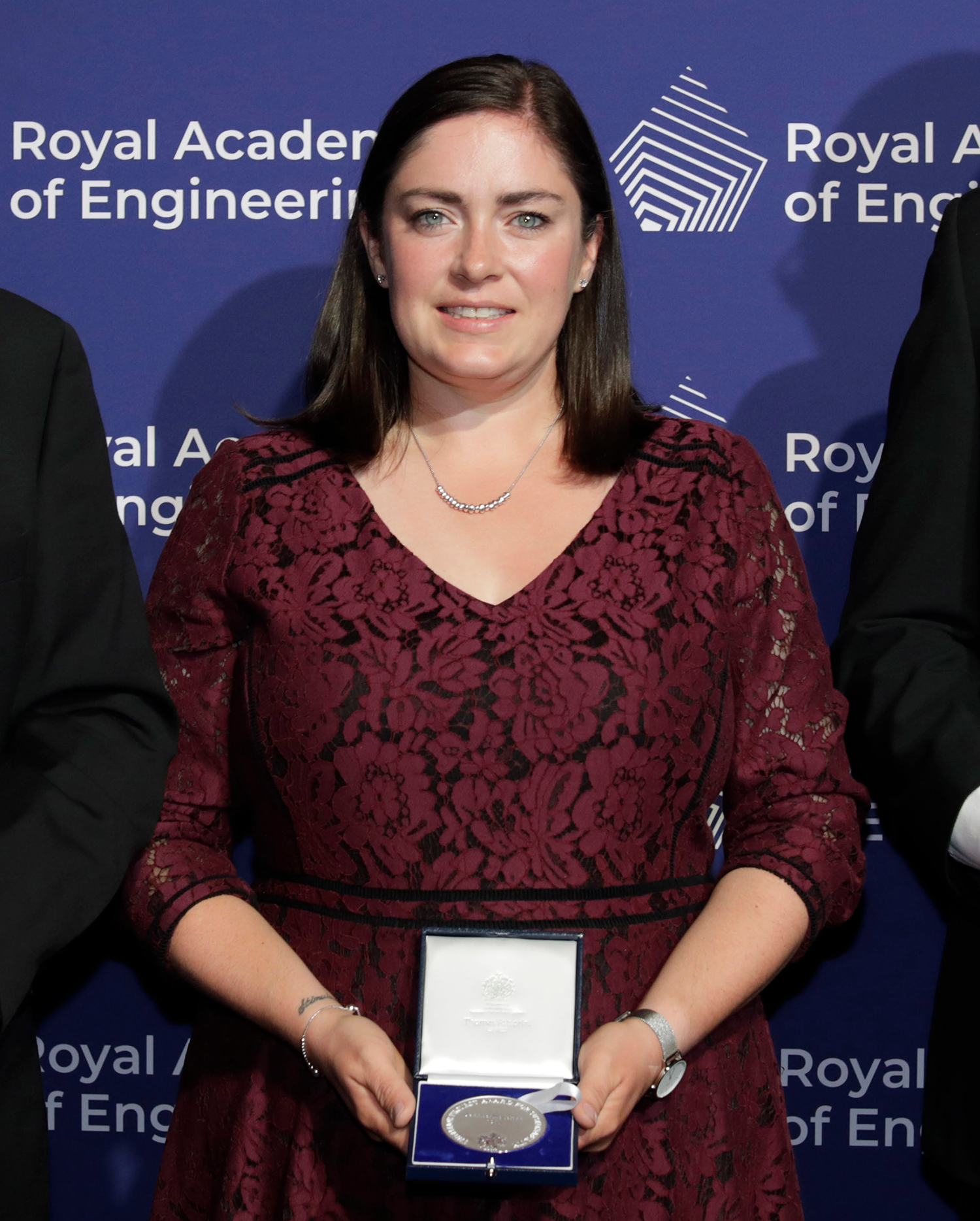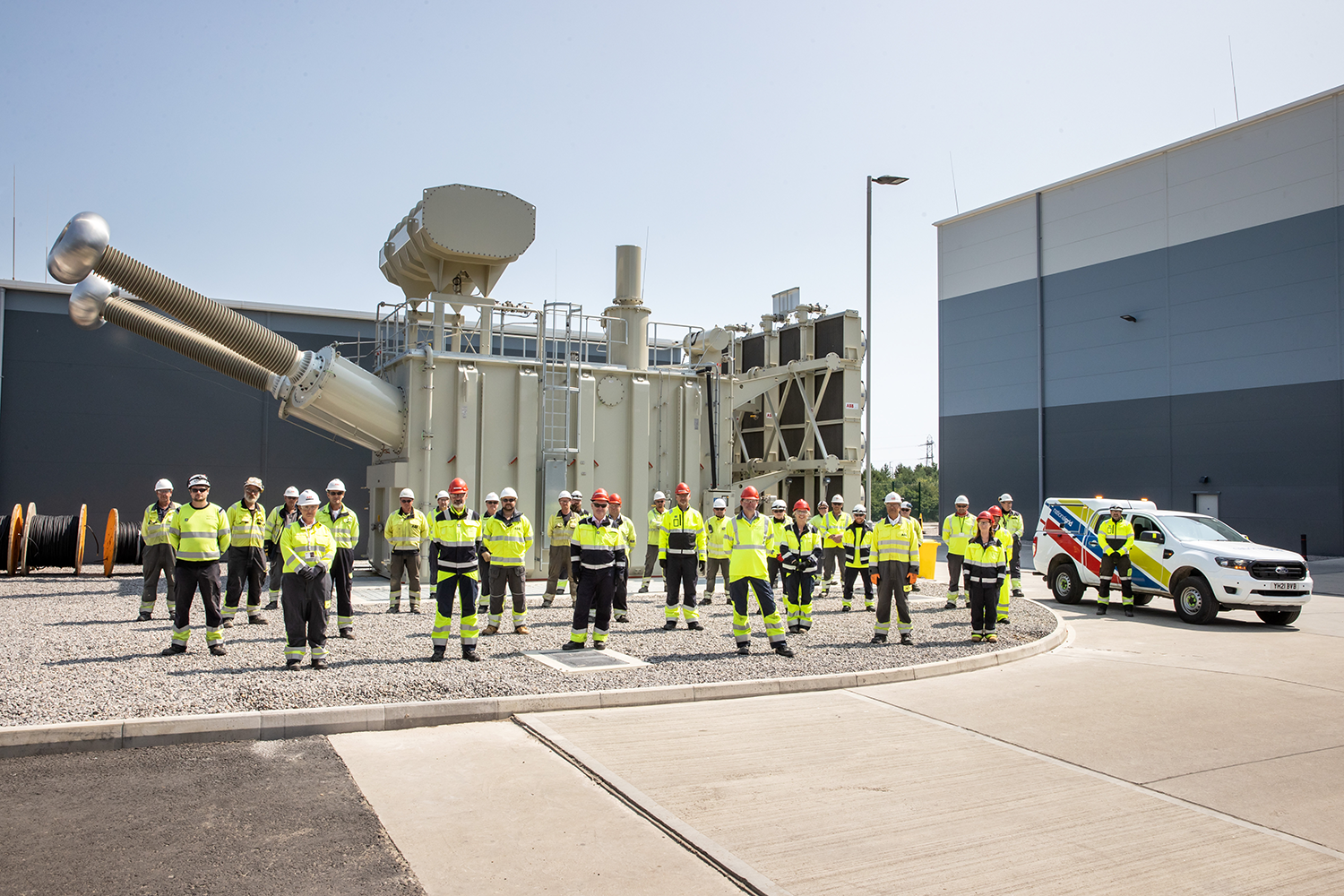How I got here – Jennifer McCartney
Jennifer McCartney, a development engineer at National Grid, is part of the team behind the North Sea Link Interconnector project, which has won the Royal Academy of Engineering’s 2022 Major Project Award for Sustainability . This 720-km-long, high-voltage direct current (HVDC) subsea interconnector is the longest in the world and allows renewable energy to flow between the UK and Norway for the first time.
Why did you first become interested in science/engineering?
I’ve always been interested in maths and physics, even from a young age and throughout my time at school. I remember as a child visiting a nuclear power station on the west coast of Scotland on a day trip and thinking, this is amazing. The scale of the site and what it was doing intrigued me and I wanted to know more.
Maths and physics are also both subjects that came naturally to me. I love the fact that they both have tangible outputs, and of course, the practical application – you can see it in action in everyday life.
I made my decision to go into engineering after chatting to a family friend about potential degree options, and electrical and electronic engineering seemed like the natural choice. I always preferred the electrical, rather than electronic, aspect of the degree because I felt it was more tangible – with a greater focus on larger-scale production, transmission and distribution of electricity, which made the classes at university a lot more interesting.
How did you get to where you are now?
I obtained a master’s degree in electrical and electronic engineering, completed a summer placement with National Grid, through the Institution of Engineering and Technology’s (IET Power Academy, and went on to secure a place on the National Grid graduate scheme. I initially chose National Grid because of its emphasis on engineering talent development and the number of opportunities that were available across the company with an engineering focus.

Since completing the graduate scheme, and over the last 10 years at National Grid, I’ve had several roles across the business, in development and construction.
Although the roles have been varied, they’ve always had an engineering element at their core. I’ve worked as a development engineer on capital delivery projects, as well as a project engineer on the UK converter station element of the North Sea Link HVDC interconnector, which contributes to the UK sustainability targets.
As well as all the amazing career opportunities and professional experiences, I have also been fortunate enough to work with some amazing people that have provided guidance, mentoring and some fantastic advice throughout my career.
What has been your biggest achievement to date?
I’d say that my biggest professional achievement would be obtaining my chartership through the IET. It was a lot of hard work and effort, but it gave me something tangible that showed all the knowledge and experience that I had gained throughout my career.
My contribution to the successful commissioning of the North Sea Link Interconnector is also a career high point. The sheer scale of the development, as the longest subsea interconnector in the world, is incredible and I spent two years working on the UK converter station delivery. I had the opportunity to work with some amazing people, and there was a real one-team ethos between us and the Norwegians which was just fantastic. All in all, we delivered an asset that will help to not only provide greener energy to the UK but also contribute to a major reduction in carbon emissions – something that I am incredibly proud of.

What is your favourite thing about being an engineer?
It’s the variety of work that you get the opportunity to be involved in. Two days are very rarely the same.
What does a typical day involve for you?
That’s the great thing about being an engineer, there’s no such thing as a typical day. A day in the life of an engineer can involve anything from site visits and reviewing technical designs to scoring tender submissions from suppliers. There really is something for everyone, whether you are drawn to the either the technical or commercial elements of engineering.
What would be your advice to young people looking to pursue a career in engineering?
There are so many routes that young people can take, to get into a career in engineering. I’d recommend being open to any opportunities that might arise and having a chat to people that are already on their engineering career journey, to really understand what being an engineer is all about and understand the route that is right for you.
What’s next for you?
My career to date has been focused on roles in development and construction, so the natural next step feels like it should be operations. I have never worked in an operational role before, and I think it will give me a new challenge and opportunity to develop. I’m keen to understand more about how the projects that I have helped to deliver are operated and maintained in a business-as-usual scenario, rather than within a project environment. I am also going into my next role as a first-time mum of a one-year-old, so I’m looking forward to seeing how that journey goes too.
Quick-fire questions
Age: 33
Qualifications: Master’s in electronic and electrical engineering
Biggest engineering inspiration: Joe Collins (a family friend) without him I wouldn’t have been an engineer at all. Thanks Joe.
Most used technology: HVDC cables and converter site infrastructure.
Three words that describe me: mum, engineer, Scottish.
Keep up-to-date with Ingenia for free
SubscribeOther content from Ingenia
Quick read

- Environment & sustainability
- Opinion
A young engineer’s perspective on the good, the bad and the ugly of COP27

- Environment & sustainability
- Issue 95
How do we pay for net zero technologies?
Quick read

- Transport
- Mechanical
- How I got here
Electrifying trains and STEMAZING outreach

- Civil & structural
- Environment & sustainability
- Issue 95